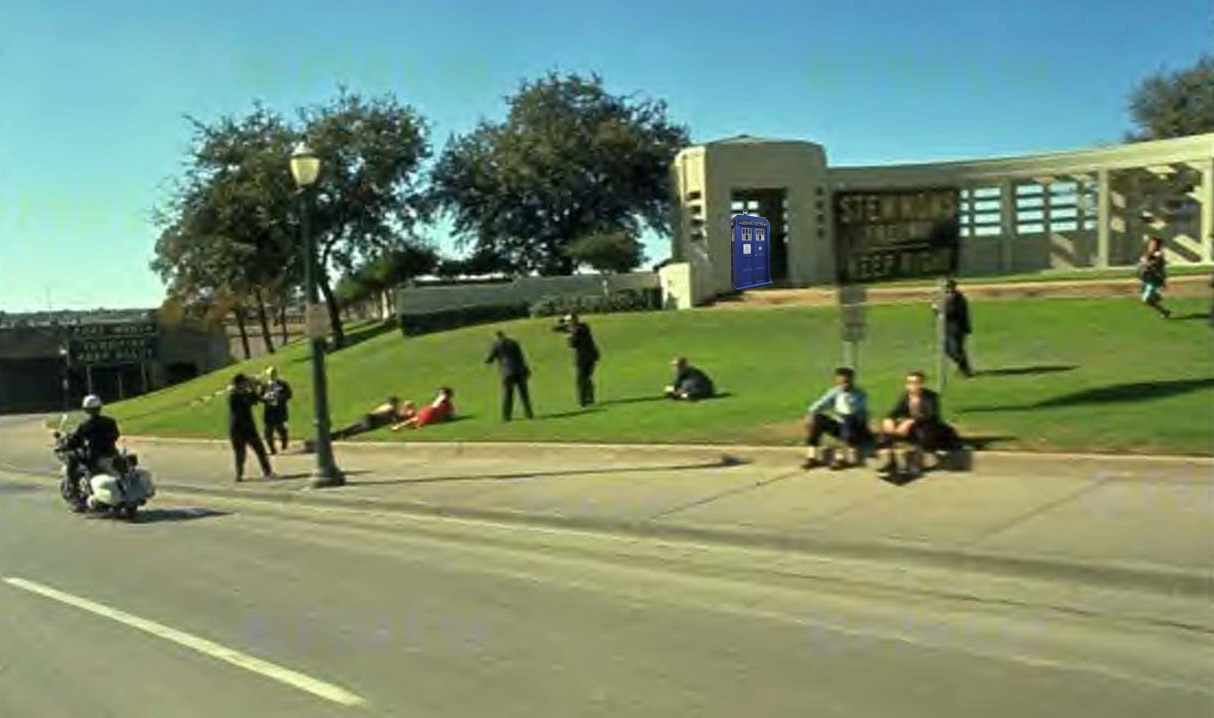So here I am, in the front room of my house watching TV. It’s 7.30pm on Friday 22nd November 2013. Fifty years ago to the minute and the day, I was also sitting in a front room watching TV, but that was in my parents’ house. My mother was crying, my father was sitting dumbstruck as the news came from the small black and white screen. John F Kennedy was dead.
When the news of the shooting first emerged just after 6pm that Friday evening, TV programmes were immediately postponed and for the next hour we had a simple message on the screen, accompanied by dirge music, interspersed occasionally by an update from the voice of a newsreader that was only preparing the audience for the inevitable. Maybe that’s one of the reasons we all remember what we were doing, because we had an hour to contemplate what it could mean for the world. For not only was this man a symbol of hope, he was also the first politician in my lifetime who wasn’t old enough to be my grandfather.
I had been a teenager for barely a few months, yet I knew this was a milestone moment. The American President had been assassinated, one of the most powerful persons on the planet. The same President Kennedy who, barely more than a year earlier, had faced-down the enemy and saved my generation from having to go to war like all of my family’s generations before me. To those of a more tender age this may sound melodramatic, but you didn’t go to school on that day in October 1962 not knowing whether you could return home should missiles start flying overhead in both directions that afternoon.
In the intervening years there have been many conspiracy theories, but right then we knew whodunit. The Russians had the obvious motive, after all it was they who had to back-down over Cuba and, in those cold-war days, losing face created dangerous scenarios. Today wall-to-wall 24-hour coverage would fill the airwaves with breaking news updates, but back then TV programmes didn’t start until the evening, except on Saturdays when Grandstand occupied the afternoon hours with outside broadcasts linked from a studio in Broadcasting House. The following day, Saturday 23rd November, those links were interspersed with news bulletins, and as the facts about Lee Harvey Oswald and his back story began to filter through, it just confirmed that the Soviets may have manufactured the opportunity as well.

Straight after Grandstand, at 5.15, a new childrens’ programme was broadcast for the first time; a strange futuristic programme that began with weird electronic music and swirling lens-effects, but retained the reassuring rattling sets and echoing footsteps of all contemporary TV drama. Maybe the BBC considered postponing that as well, but thought better of it – after all, Doctor Who had travelled through space and time to save Planet Earth from some unknown threat. What made it even more plausible was that the outside of the spaceship looked like the ubiiquitous police box, and its occupant was old enough to be my grandfather. Maybe that was why the BBC let it go ahead – they thought we all needed reassurance that the old guard establishment would save the day in the real world even though that first episode ended with the main characters travelling back to the stone age.
Fifty years on, we are yet again contemplating an event frozen in time yet still, apparently, unexplained, whilst simultaneously celebrating the start of a series of stories released of time-constraint. As well as sharing the same 24-hours in real time, both beamed black & white pictures into our lounges scary enough for our generation to run for the safety of the space behind the sofa. 25 years later our children still ran for that space but, thankfully, it was only the improved special effects accompanying the intermediate Doctors that caused them to do so.
With the marvels of CGI now carrying those same emotions to our grandchildren, maybe their generation will be spared the endless documentaries and feature films espousing yet more conspiracy theories about that distant lunchtime in Dealey Plaza. If anybody still living, whether secret service or underworld, genuinely knows why Oswald took his gun to work that day, or why two days later Jack Ruby denied the world the show trial that may have revealed all, their situation will guarantee they take their secret with them to the next life. Of course, there may still be someone, accidentally in the wrong place at the right time to chance upon the true circumstances of the grassy knoll.
Who could possibly know?


